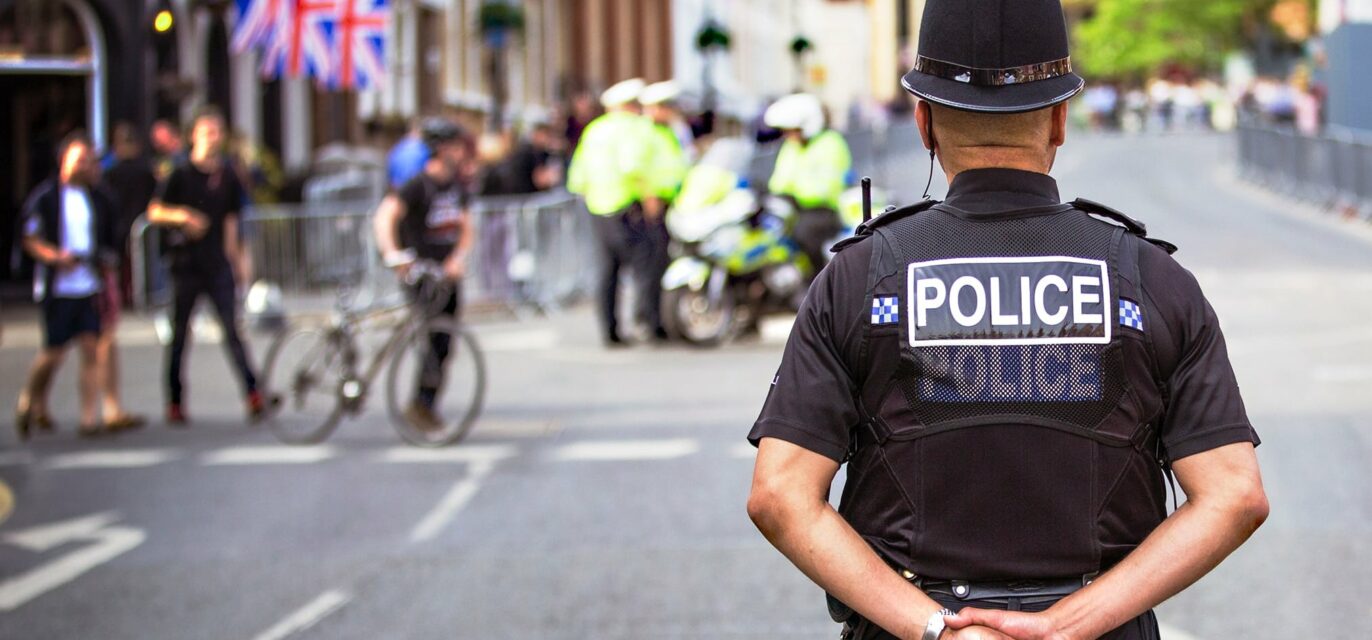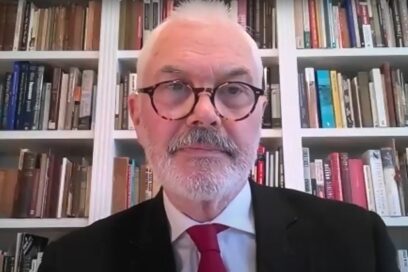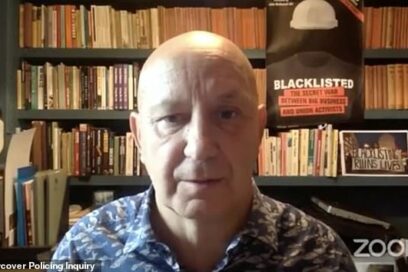
An easy guide to the Undercover Policing (“SpyCops”) Inquiry
Evidence and analysis from the blacklisting tranche of the Undercover Policing (SpyCops) inquiry.
The IER is collating and analysing evidence pertaining to the infiltration of trade unions by undercover political policing units as it comes out of the Undercover Policing Inquiry (UCPI) - popularly known as the SpyCops Inquiry.
The UCPI began hearing evidence in November 2020 and will cover a wide range of improper conduct by the secret service since 1968. Although it will be publishing much of its evidence onto its own website, the IER will provide a more focused resource for the labour movement on these pages.
This guide will be regularly updated with evidence specifically pertaining to the infiltration of trade unions as well as expert analysis on both the UCPI and the CHIS Bill in the coming months and years.
Background information
-
History and scope of the Undercover Policing (SpyCops) inquiry
The Undercover Policing Inquiry (UCPI) was established in 2015 in response to evidence brought to light through the Ellison Review of “appalling practices in undercover policing” during the investigation of the murder of Stephen Lawrence. Author of that report, Mark Ellison, revealed that an undercover officer – referred to as N81 – infiltrated a campaign group set up to seek justice for Lawrence. Further, Ellison said he was “unable to reject” allegations made by former-spy, Peter Francis, that he had been told to find information that could be used to smear the Lawrence family.
It was clear that this was not an isolated incident. Other, mostly left-leaning, groups – including trade unions – reported strong evidence that they had been spied on by the State, that agents had engaged in long-term relationships with female activists, and that some had even fathered children under these false pretences.
The UCPI aims to investigate the scale of injustice perpetrated by the secret service through its infiltration of law-abiding groups, which it is believed were targeted for purely political reasons. It is then expected to make recommendations for the future.
The inquiry began taking evidence in November 2020 and will examine the behaviour of undercover officers between 1968 and the present day. The video below explains the work that has been conducted over the last five years.
“SpyCops”
In 2010, news broke that the undercover officer Mark Kennedy had not only infiltrated environmental campaign groups under the name Mark Stone, but had conducted long-term relationships with women he met there. This conspiracy, and others like it, became popularly known as the SpyCops scandal.
SpyCops were more officially known as the Special Demonstration Squad (SDS) between 1968 and 2007, and then the National Public Order Intelligence Unit (NPOIU). However, these are not the only authorities suspected of being involved in unjust espionage and there is strong evidence that the State also conspired with private corporations to ensure trade unions could not get a footing in certain industries.
-
Blacklisting – a brief history
Trade union activists have for decades complained of being unfairly targeted by employers for dismissal, but for many years those who said they had been locked out of employment entirely through an illicit collusion among private companies were told they were conspiracy theorists.
In 2009, they were vindicated by evidence uncovered by the Information Commissioners’ Office (ICO) during a raid of the premises of The Consulting Association (TCA). There, they found thousands of files on construction workers detailing names, National Insurance numbers and even information on their personal lives. In the scandal that unfolded, it came to light that TCA was set up and funded by 44 major construction firms – including household names like Sir Robert McAlpine, Costain and Skanska. Directors from the companies sat on the board of TCA and fed information on trade unionists and workers who had raised health and safety concerns to the operator of the blacklist – Ian Kerr. When recruiting staff, the employers “vetted” candidates through the blacklist and refused to hire any person found to be on it.
These revelations led to the passing of the Blacklist Act 2010, an inquiry by the Scottish Affairs Committee, and a legal challenge that ended in a confession of blacklisting by the firms in the High Court.
But victims of the blacklisting scandal do not feel that justice has been served. Forced to settle out of court, the workers have only been provided with monetary compensation and not with a public expose of those who ruined their lives – individuals believed to have included agents of the State.
Over a century of State collusion with employers against workers
The Consulting Association (TCA) was not the first organisation of its kind. In 1919, a group of powerful industrialists and MPs established the Economic League – a secret body that aimed to promote the interests of free enterprise and oppress “subversive” left-wing voices arguing for the rights of workers. Among its activities was the blacklisting of trade union activists from work.
Its existence was uncovered in the 1960s and its membership is known to have included powerful employers, high-ranking military officers, politicians, Lords, and newspaper editors. After much press attention and a public inquiry in the 1980s and 1990s, the Economic League was shut down in 1993 – the very year TCA was established and former Economic League employee, Ian Kerr, installed at its helm.
In his evidence to the Scottish Affairs Committee in 2012, Kerr confirmed that the TCA was established out of the Economic League. The baton of worker suppression – and, indeed, blacklist files themselves – were simply passed from the Economic League to the TCA, allowing this secret cabal to disappear into the shadows once more for another 16 years until its existence was uncovered by the ICO raid.
It has long been known that the Economic League worked closely with the British State and its secret service agents. In 2018, Scotland Yard confirmed that it is “on the balance of probabilities … proven” that special branch officers supplied the TCA with information.
-
Covert Human Intelligence Sources (Criminal Conduct) Bill (CHIS)
The Covert Human Intelligence Sources (Criminal Conduct) Bill (CHIS) entered Parliament in September 2020, shortly before the Undercover Policing Inquiry began taking evidence in November 2020.
It seeks to give a statutory footing to the unofficial agreement with Secret Service agencies that undercover operatives may need to commit certain crimes in order to maintain their cover – an agreement that assumes some unlawful activity may be worth it for the “greater good” of protecting national security and saving lives.
Whether or not readers find this sentiment agreeable, the CHIS Bill is extraordinarily wide ranging. A more palatable instance in which a spy might break the law to protect the public could involve joining a proscribed organisation in order to foil a terrorist plot, for example. But the CHIS Bill goes much further. It does not rule out any criminal act – not rape, or murder or torture. And spies need not be acting to protect “national security”, as the Bill allows for crimes to be committed as part of operations that aim to “prevent disorder” or promote “the interests of economic wellbeing”. Further, the Bill does not even limit itself to the Secret Services, but instead extends this power to a wide range of public authorities, including HMRC and the Food Standards Agency.
An amendment put forth to exclude trade unions from covert surveillance was rejected, as were others proposing safeguards to protect the public from the abuse of State power.
Read Dr Andrew Moretta and Professor Keith Ewing’s analysis of CHIS
The CHIS Bill is currently passing through the House of Lords and the IER will closely follow its progress.
The story so far…









The Bill that gives MI5 carte blanche to spy on trade unions